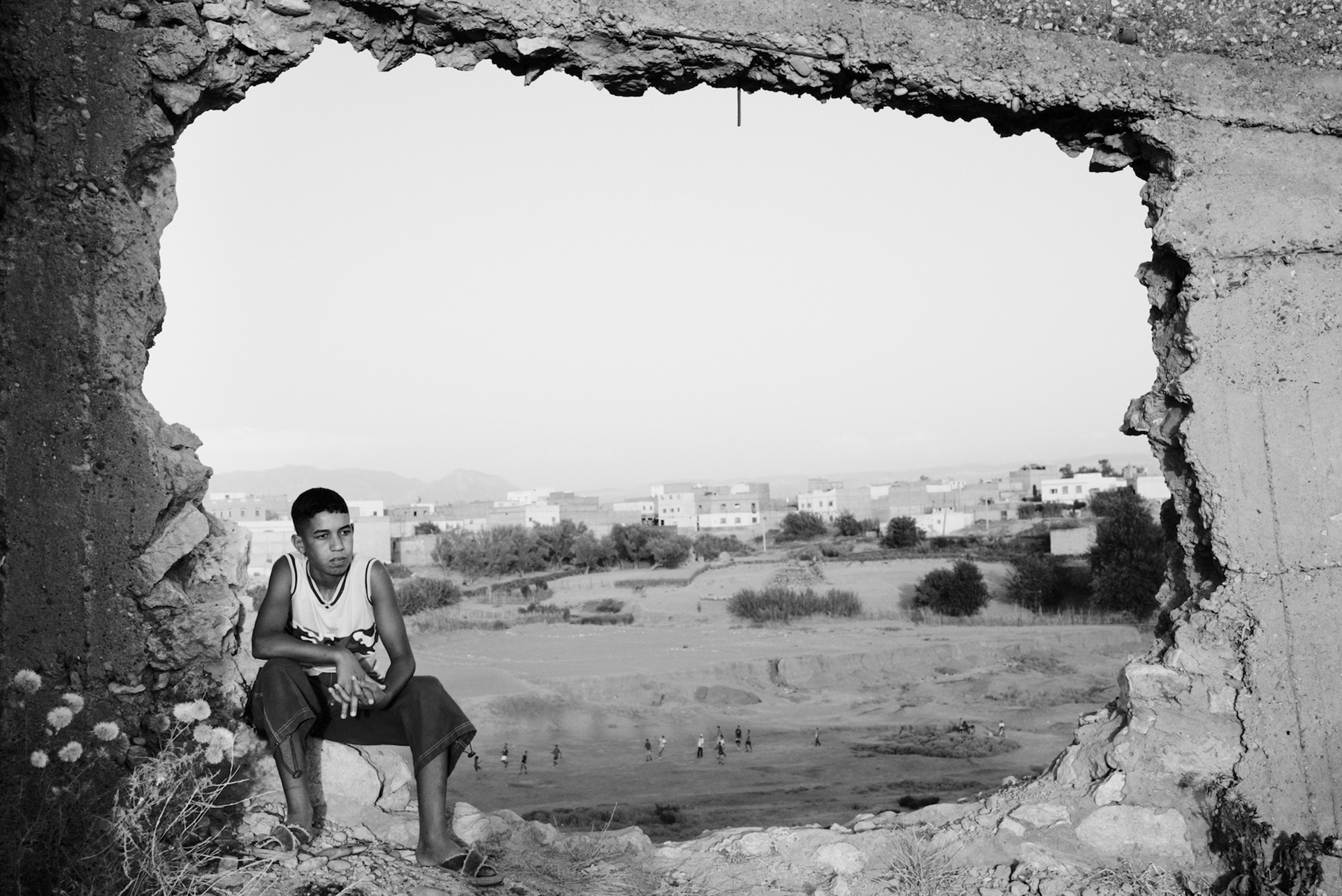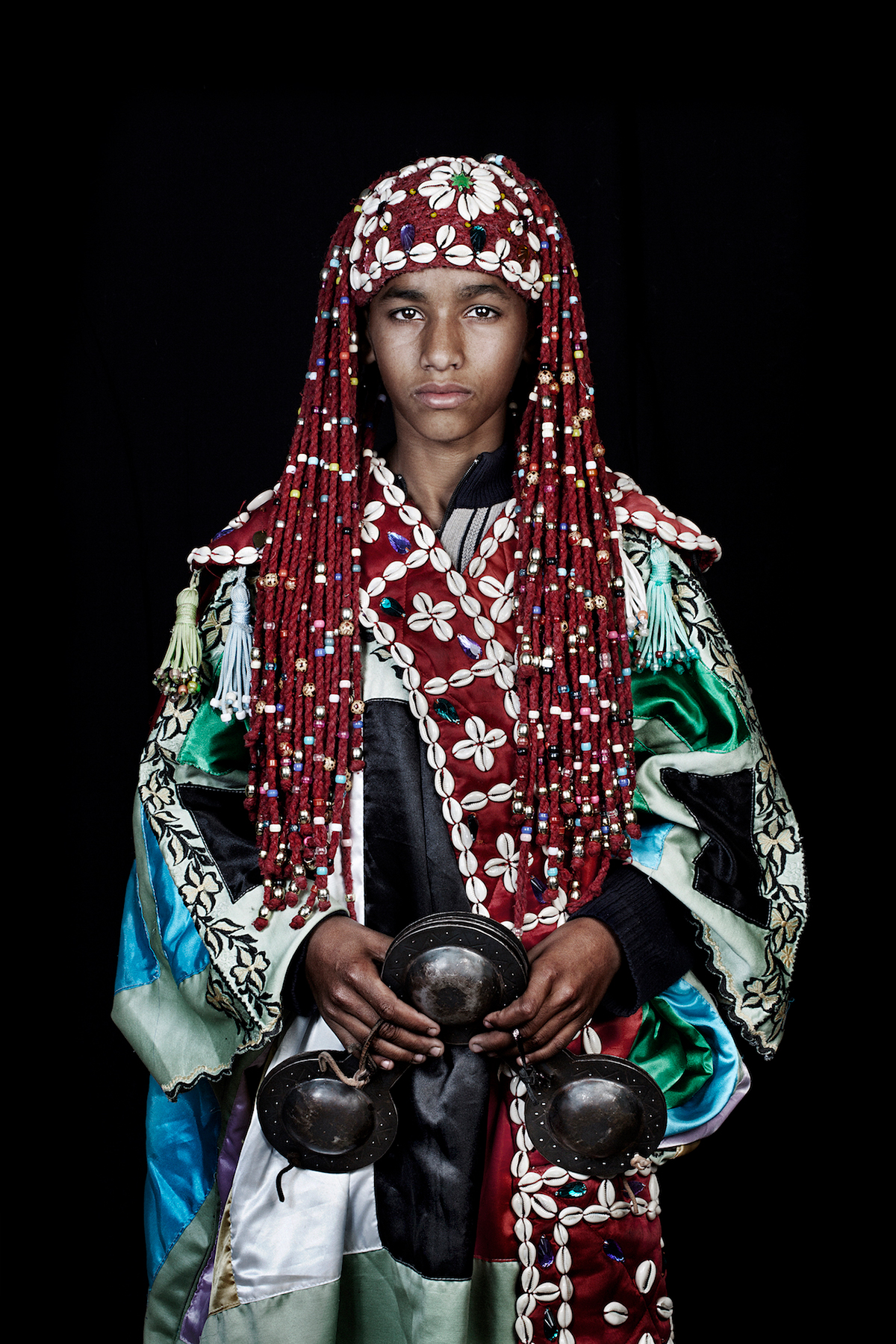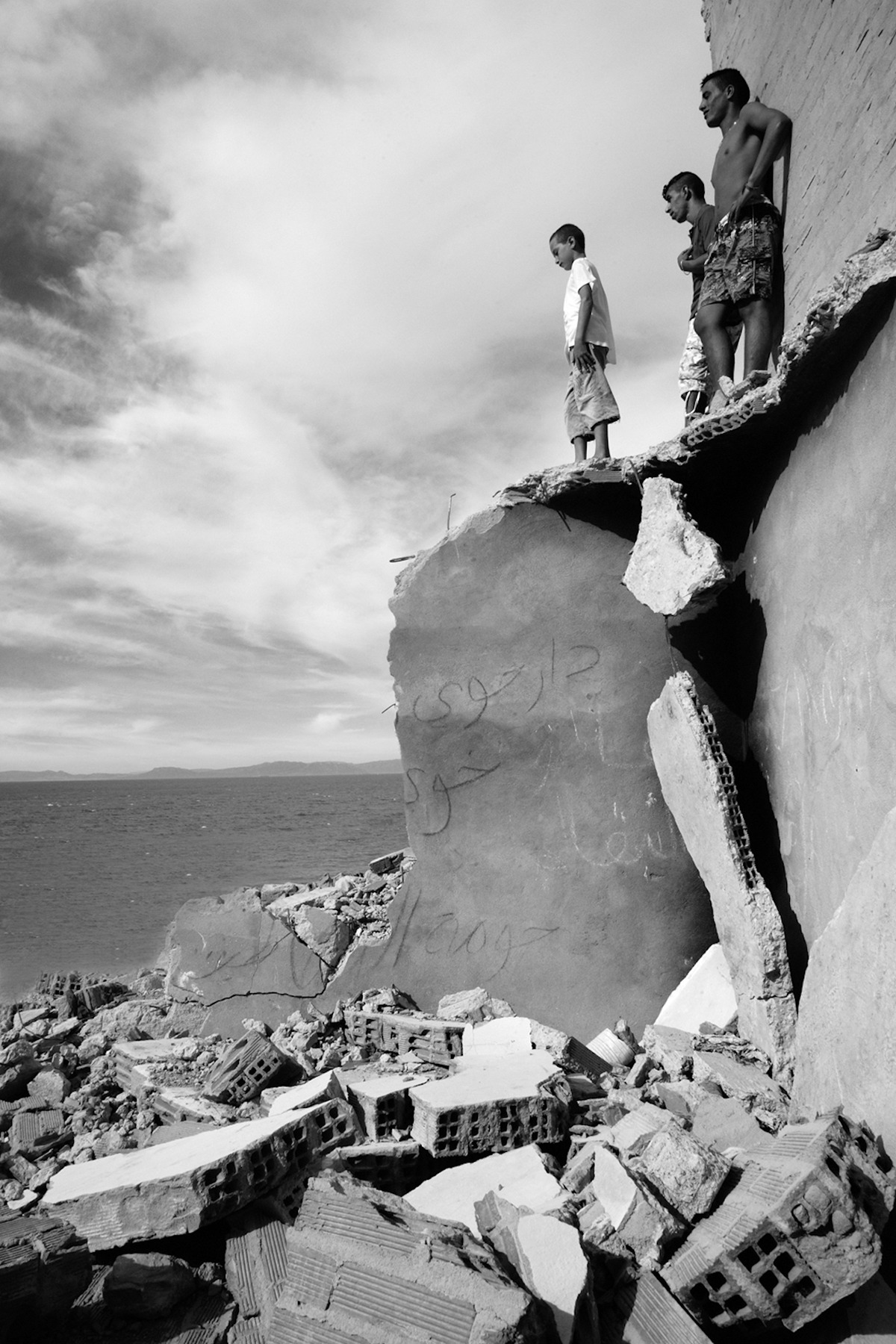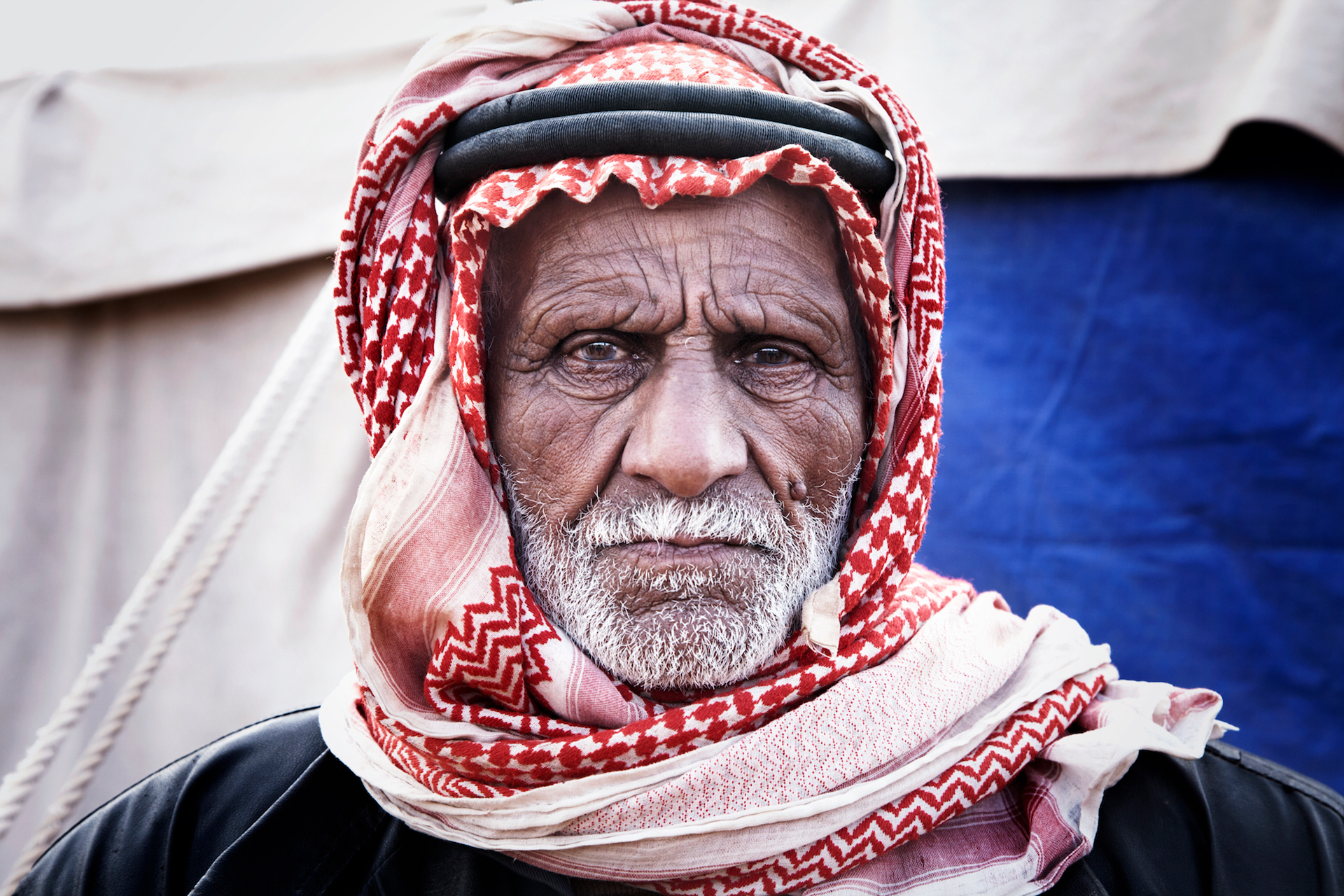Photographer, video artist and activist Leila Alaoui is the focus of a new retrospective at Somerset House bringing together three image series created over a six-year period. The show, Rite of Passage, also features her final, unfinished video work that she began in 2015 – the year before she died as a result of injuries sustained in a terrorist attack in Ouagadougou, Burkina Faso at the age of 33, while on an Amnesty International assignment.
The French-Moroccan artist was known for her sensitive portraits of people from regions affected by conflict and unrest across the Mediterranean, North Africa and the Middle East. Alaoui regularly worked with NGOs, and used her photography to reveal human narratives in crises, migration and displacement.

Commissioned by the EU, Alaoui’s first series from 2008, No Pasara (Entry Denied), followed a group of young Moroccans awaiting the journey to Europe from the port cities of Nador and Tangier in their homeland. Alaoui’s quiet, black and white portraits set against the Mediterranean waterfront contrast ruins and rugged landscapes with expansive, serene waters and dreamlike touches, symbolising a hopeful future awaiting them across the sea.
Alaoui returned to Morocco for her series Les Marocains created between 2010 and 2014, which borrows cues from Robert Frank’s pivotal book The Americans in both name and spirit. Yet Alaoui’s travelling survey of Moroccan life has an arguably greater level of intimacy than Frank’s, given her personal connection to the country and the closeness of the mobile studio environment she used for the series.
Alaoui spent time getting to know her subjects, who represented various cultural identities within Morocco, before photographing them against a stark black background that allows the nuances and distinctive dress of each person to come to the fore.


Also featured in the show is her 2013 series Natreen (We Wait), commissioned by the Danish Refugee Council. Set in Lebanon, Natreen documents the lives of refugees fleeing the war in Syria through evocative portraits, which serve as the antithesis of many common media portrayals of refugees.
As Alaoui’s career progressed, she began experimenting more with moving image works, one of which is on display at Rite of Passage. Started in 2015, L’Île du Diable (Devil’s Island) is an unfinished video piece drawing on photographs, video, sound and testimonies, which reveal stories of migrant workers who worked in a car factory in Boulogne-Billancourt to the west of Paris during the post-war years. The factory has since been demolished but through her project, the people who worked there – as with everyone represented in Alaoui’s archive – are now irrevocably embedded in history.



Rite of Passage runs at Somerset House until 28 February; somersethouse.org.uk
The post Leila Alaoui retrospective reveals intimate stories of migration appeared first on Creative Review.
from Creative Review https://ift.tt/3jTO2pt

No comments:
Post a Comment